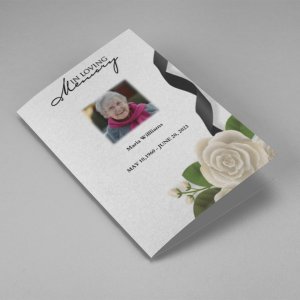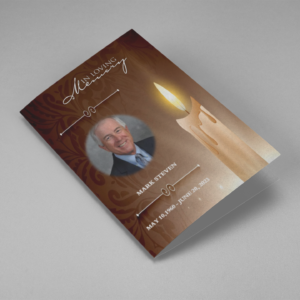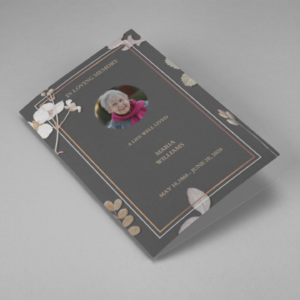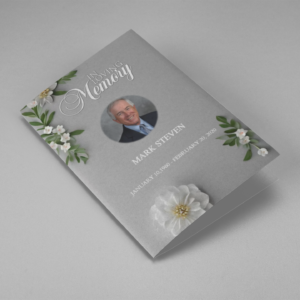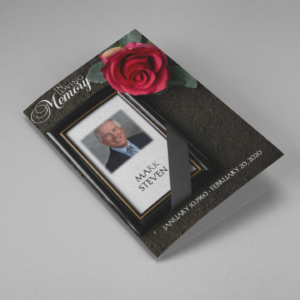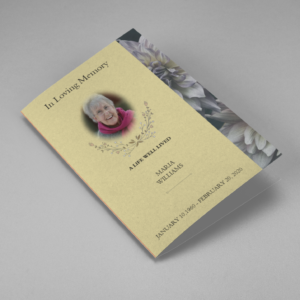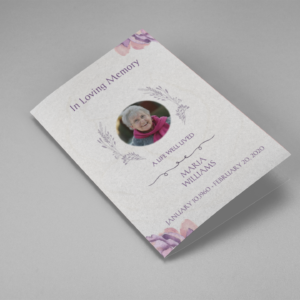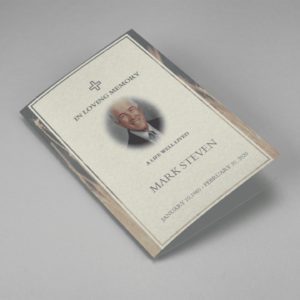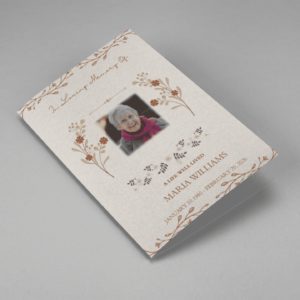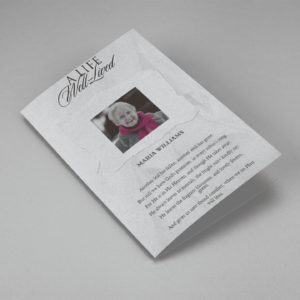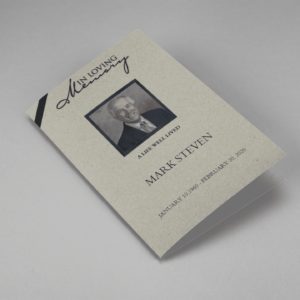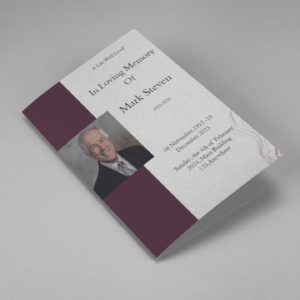Writing an obituary can be a challenging task, especially during a time of grief. Obituary samples and examples can be a helpful resource for those who are unsure of where to start. QuickFuneral.com is a website that offers a wide range of obituary samples and examples to help guide you through the process.
Their collection of obituary samples includes traditional and modern styles, with a variety of layouts and designs to choose from. You can easily customize the sample obituaries to fit your loved one’s personality and interests.
QuickFuneral.com also offers a step-by-step guide on how to write an obituary, complete with tips on what to include and how to structure it. Whether you are a first-time writer or an experienced writer, their guide can help you create a heartfelt and meaningful tribute to your loved one.
In addition to obituary samples and guides, QuickFuneral.com offers other funeral planning resources, including funeral program templates, memorial keepsakes, and sympathy gifts. Their user-friendly website and responsive customer service team make the process of creating an obituary as easy and stress-free as possible.
Overall, QuickFuneral.com is a valuable resource for anyone in need of obituary samples and examples. With their wide selection of templates and guides, you can create a touching and meaningful tribute to honor the life of your loved one.
Introduction of Obituary Examples
An obituary is a written notice that announces the death of an individual and provides information about their life, accomplishments, and funeral arrangements. Writing an obituary can be a difficult and emotional task, but it is an important way to pay tribute to the deceased and share their story with others. In this article, we will discuss what an obituary example is, how it can be helpful in writing an obituary, what to include and what to ignore when writing an obituary.
What is an Obituary Example?
An obituary example is a sample obituary that provides a structure and format for writing an obituary. It is a helpful tool for those who are writing an obituary for the first time or for those who want to ensure they include all necessary information. An obituary example typically includes the following information:
- Name, age, and date of passing
- Birthplace and parents’ names
- Education and career
- Marriage and family
- Hobbies and interests
- Funeral arrangements
How is an Obituary Example Helpful in Writing an Obituary?
An obituary example can be very helpful in writing an obituary as it provides a starting point for the writer. It can be difficult to know where to begin when writing an obituary, especially when grieving the loss of a loved one. An obituary example can provide a structure and format to follow, making it easier to organize thoughts and memories. Additionally, an obituary example can ensure that all necessary information is included, such as funeral arrangements and surviving family members.
What Should an Obituary Include?
An obituary should include the following information:
- Name, age, and date of passing: This is the basic information that should be included in the obituary.
- Birthplace and parents’ names: This information provides a brief overview of the individual’s background.
- Education and career: This section can provide details about the individual’s education and career, highlighting their accomplishments and contributions to their field.
- Marriage and family: This section can include information about the individual’s marriage, children, grandchildren, and other family members.
- Hobbies and interests: This section can provide insight into the individual’s passions and hobbies, giving readers a better understanding of who they were as a person.
- Funeral arrangements: This section should include information about the funeral service, such as the date, time, and location, as well as any requests for donations or memorials.
- What Should an Obituary Ignore?
- An obituary should avoid including personal details that the deceased may not have wanted to be made public. Additionally, it is important to be respectful and tactful when discussing sensitive topics, such as cause of death. It is also not necessary to provide a detailed account of the individual’s entire life, as the obituary should focus on the most important and impactful aspects of their life.
Conclusion
An obituary is an important way to honor and celebrate the life of an individual who has passed away. While it can be a difficult task, using an obituary example as a starting point can make the process easier and ensure that all necessary information is included. It is important to focus on the individual’s accomplishments, passions, and impact on the lives of others, while being respectful and tactful in discussing sensitive topics. By crafting a thoughtful and meaningful obituary, we can help to ensure that the individual’s legacy lives on.
Obituary Samples & Example Obituaries Templates
-
Searching for a White Roses And Black Ribbon Funeral Program Template that is easy to print and has a cutting-edge look? White Roses And Black Ribbon Funeral Program Template is the Perfect decision because it measures 8.5”x 11”.
- No Limitation on Content, Edit anything
- Edit anytime – unlimited revisions even after purchased
- Get a printable PDF downloaded to get it printed on your own
-
Searching for a Realistic Burning Candle Funeral Program Template that is easy to print and has a cutting-edge look? Realistic Burning Candle Funeral Program Template is the Perfect decision because it measures 8.5”x 11”.
- No Limitation on Content, Edit anything
- Edit anytime – unlimited revisions even after purchased
- Get a printable PDF downloaded to get it printed on your own
-
Searching for a Bulltongue Arrowhead Funeral Program Template that is easy to print and has a cutting-edge look? Bulltongue Arrowhead Funeral Program Template is the Perfect decision because it measures 8.5”x 11”.
- No Limitation on Content, Edit anything
- Edit anytime – unlimited revisions even after purchased
- Get a printable PDF downloaded to get it printed on your own
-
Searching for a Grey Floral White Tiny Flower Funeral Program Template that is easy to print and has a cutting-edge look? Grey Floral White Tiny Flower Funeral Program Template is the Perfect decision because it measures 8.5”x 11”.
- No Limitation on Content, Edit anything
- Edit anytime – unlimited revisions even after purchased
- Get a printable PDF downloaded to get it printed on your own
-
Searching for a Red Flower Dark Soil Funeral Program Template that is easy to print and has a cutting-edge look? Red Flower Dark Soil Funeral Program Template is the Perfect decision because it measures 8.5”x 11”.
- No Limitation on Content, Edit anything
- Edit anytime – unlimited revisions even after purchased
- Get a printable PDF downloaded to get it printed on your own
-
Searching for a Pink Rose Frame Floral Oval Badge Funeral Program Template that is easy to print and has a cutting-edge look? Pink Rose Frame Floral Oval Badge Funeral Program Template is the Perfect decision because it measures 8.5”x 11”.
- No Limitation on Content, Edit anything
- Edit anytime – unlimited revisions even after purchased
- Get a printable PDF downloaded to get it printed on your own
-
Searching for a Brown and White Classic Funeral Program Template that is easy to print and has a cutting-edge look? Brown and White Classic Funeral Program Template is the Perfect decision because it measures 8.5”x 11”.
- No Limitation on Content, Edit anything
- Edit anytime – unlimited revisions even after purchased
- Get a printable PDF downloaded to get it printed on your own
-
Searching for a Purple Elegant Watercolor Funeral Program Template that is easy to print and has a cutting-edge look? Purple Elegant Watercolor Funeral Program Template is the Perfect decision because it measures 8.5”x 11”.
- No Limitation on Content, Edit anything
- Edit anytime – unlimited revisions even after purchased
- Get a printable PDF downloaded to get it printed on your own
-
Searching for a Cream and Green Photo Obituary Program that is easy to print and has a cutting-edge look? Cream and Green Photo Obituary Program is the Perfect decision because it measures 8.5”x 11”.
- No Limitation on Content, Edit anything
- Edit anytime – unlimited revisions even after purchased
- Get a printable PDF downloaded to get it printed on your own
-
Searching for a Cream Simple Elegant Photo Church Program that is easy to print and has a cutting-edge look? Cream Simple Elegant Photo Church Program is the Perfect decision because it measures 8.5”x 11”.
- No Limitation on Content, Edit anything
- Edit anytime – unlimited revisions even after purchased
- Get a printable PDF downloaded to get it printed on your own
-
Searching for a Grey Classic Minimalist Funeral Program Template that is easy to print and has a cutting-edge look? Grey Classic Minimalist Funeral Program Template is the Perfect decision because it measures 8.5”x 11”.
- No Limitation on Content, Edit anything
- Edit anytime – unlimited revisions even after purchased
- Get a printable PDF downloaded to get it printed on your own
-
Searching for a White Classic Funeral Program Template that is easy to print and has a cutting-edge look? White Classic Funeral Program Template is the Perfect decision because it measures 8.5”x 11”.
- No Limitation on Content, Edit anything
- Edit anytime – unlimited revisions even after purchased
- Get a printable PDF downloaded to get it printed on your own
-
Searching for a Cream Gold Marble Funeral Program Template that is easy to print and has a cutting-edge look? Cream Gold Marble Funeral Program Template is the Perfect decision because it measures 8.5”x 11”.
- No Limitation on Content, Edit anything
- Edit anytime – unlimited revisions even after purchased
- Get a printable PDF downloaded to get it printed on your own
-
Searching for an Elegant Beige Funeral Program Template that is easy to print and has a cutting-edge look? Elegant Beige Funeral Program Template is the Perfect decision because is has a measure of 8.5”x 11”.
- No Limitation on Content, Edit anything
- Edit anytime – unlimited revisions even after purchased
- Get a printable PDF downloaded to get it printed on your own
-
Searching for a White Floral Pro Funeral Program Template that is easy to print and has a cutting-edge look? White Floral Pro Funeral Program Template is the Perfect decision because is has a measure of 8.5”x 11”.
- No Limitation on Content, Edit anything
- Edit anytime – unlimited revisions even after purchased
- Get a printable PDF downloaded to get it printed on your own
-
Searching for a Grey and Burgundy Elegant Funeral Program Template that is easy to print and has a cutting-edge look? Grey and Burgundy Elegant Funeral Program Template is the Perfect decision because is has a measure of 8.5”x 11”.
- No Limitation on Content, Edit anything
- Edit anytime – unlimited revisions even after purchased
- Get a printable PDF downloaded to get it printed on your own
-
Searching for a Creative Watercolor Floral Funeral Program Template that is easy to print and has a cutting-edge look? Creative Watercolor Floral Funeral Program Template is the Perfect decision because is has a measure of 8.5”x 11”.
- No Limitation on Content, Edit anything
- Edit anytime – unlimited revisions even after purchased
- Get a printable PDF downloaded to get it printed on your own
-
Searching for a Soft Green and Grey Minimalist Floral Funeral Program Template that is easy to print and has a cutting-edge look?Soft Green and Grey Minimalist Floral Funeral Program Template is the Perfect decision because is has a measure of 8.5”x 11”.
- No Limitation on Content, Edit anything
- Edit anytime – unlimited revisions even after purchased
- Get a printable PDF downloaded to get it printed on your own
-
Searching for a Green Natural Funeral Program Template that is easy to print and has a cutting-edge look? Green Natural Funeral Program Template is the Perfect decision because is has a measure of 8.5”x 11”.
- No Limitation on Content, Edit anything
- Edit anytime – unlimited revisions even after purchased
- Get a printable PDF downloaded to get it printed on your own
Writing perfect obituary tribute
Losing a loved one is never easy, but writing an obituary can be a way to honor their life and legacy. It can be a difficult task, especially when you are grieving, but with the right approach and some helpful tips, you can write a perfect obituary tribute. Here are some guidelines to follow when writing an obituary:
- Gather Information: Before you begin writing, gather as much information as you can about the individual’s life. This may include their birthplace and date, education, career, marriage, family, hobbies, and interests.
- Focus on the Positive: An obituary is a tribute to the life of the deceased, so it is important to focus on the positive aspects of their life. Highlight their accomplishments, contributions, and impact on the lives of others.
- Use Personal Stories and Memories: Sharing personal stories and memories can make the obituary more meaningful and memorable. Talk to family and friends to gather stories and memories that you can include in the obituary.
- Be Respectful and Tactful: When discussing sensitive topics, such as cause of death, be respectful and tactful. Avoid using language that could be hurtful or offensive.
- Keep it Concise and Simple: An obituary should be concise and easy to read. Use short sentences and avoid using jargon or technical terms. Stick to the most important details and avoid including unnecessary information.
- Include Funeral Information: Be sure to include funeral arrangements, such as the date, time, and location of the service, as well as any requests for donations or memorials.
- Proofread and Edit: Before publishing the obituary, proofread and edit for grammar and spelling errors. Make sure all information is accurate and up-to-date.
Remember, an obituary is a way to celebrate the life and legacy of the deceased. It is a tribute to their accomplishments, contributions, and impact on the lives of others. By following these guidelines, you can write a perfect obituary tribute that honors their memory and celebrates their life.
Fillable Obituary Example
[Name], aged [age], passed away on 2025 at [location]. [He/She] was born in [birthplace] on [birth date] to [parents’ names].
[Name] attended [schools attended] and went on to [career or occupation]. [He/She] was known for [personal qualities or achievements]. In [year], [Name] married [spouse’s name], and together they had [number of children].
[Name] enjoyed [hobbies or interests], and was passionate about [cause or activity]. [He/She] will be remembered for [memorable qualities or contributions].
[Name] is survived by [list of surviving family members], and [he/she] was preceded in death by [list of deceased family members].
A [funeral/memorial service] will be held on 2025 at [location]. In lieu of flowers, donations can be made to [charity or cause].
[Name] will be deeply missed by [family members or friends], and [his/her] memory will live on through [his/her] legacy and impact on the lives of others.
Tips for Obituary
if you are grieving the loss of a loved one. However, it is an important way to pay tribute to their life and legacy. Here are some tips to help you write an obituary in a meaningful and thoughtful way:
Gather Information: Before you begin writing, gather as much information as you can about the individual’s life. This may include their birthplace and date, education, career, marriage, family, hobbies, and interests.
Use a Clear and Concise Writing Style: Keep the language simple and easy to understand. Use short sentences and avoid using jargon or technical terms.
Highlight Achievements and Contributions: Focus on the individual’s accomplishments, contributions, and impact on the lives of others. This can include their work, volunteerism, or other notable achievements.
Be Respectful and Tactful: When discussing sensitive topics, such as cause of death, be respectful and tactful. Avoid using language that could be hurtful or offensive.
Include Funeral Information: Be sure to include funeral arrangements, such as the date, time, and location of the service, as well as any requests for donations or memorials.
Review and Edit: Before publishing the obituary, review and edit for grammar and spelling errors. Make sure all information is accurate and up-to-date.
Ask for Feedback: Consider asking friends or family members to review the obituary and provide feedback. They may be able to offer additional information or perspectives that you had not considered.
Writing an obituary can be a difficult task, but it is an important way to celebrate the life of an individual and share their story with others. By following these tips, you can create a meaningful and thoughtful tribute to their life and legacy.
Helpful videos for obituary examples
FAQ for Obituary Examples
Why there are confusion while writing obituary?
There can be several reasons why someone might feel confused or unsure when writing an obituary. Here are a few possible explanations:
- Emotions: Writing an obituary can be an emotional task, particularly if the person writing it is grieving the loss of a loved one. Strong emotions can make it difficult to think clearly or organize one’s thoughts effectively.
- Lack of Experience: Many people have never written an obituary before, which can make the task feel daunting or confusing. Without prior experience, it can be difficult to know where to start or what information to include.
- Unclear Expectations: Depending on the situation, there may be different expectations or requirements for the obituary. For example, some families may want a formal, traditional obituary, while others may prefer a more informal or personalized approach. Without clear guidance on what is expected, it can be hard to know how to proceed.
- Time Constraints: In some cases, there may be time pressure to complete the obituary quickly (for example, if there is a tight deadline for a newspaper or funeral program). This can make it harder to focus or give the task the attention it deserves.
Here, we are trying to give answers for frequently asked questions about obituary examples.
What is the purpose of an obituary?
The purpose of an obituary is to announce the death of an individual and provide details about their life and accomplishments.
Who usually writes an obituary?
An obituary is typically written by a family member, close friend, or a professional writer.
What information should be included in an obituary?
An obituary should include the deceased person’s full name, age, date and location of death, birthplace and date, education, career, marriage, family, hobbies, interests, notable achievements, funeral arrangements, and requests for donations or memorials.
How long should an obituary be?
The length of an obituary can vary, but it is usually between 200 and 500 words.
Should I include the cause of death in the obituary?
It is up to the family’s discretion whether or not to include the cause of death. Some families choose to include it, while others prefer to keep it private.
How can I make the obituary unique and personal?
You can make the obituary unique and personal by including personal stories, memories, and anecdotes. You can also include details about the deceased person’s hobbies, interests, and achievements that were important to them.
Can I include a photo in the obituary?
Yes, you can include a photo in the obituary. It can be a nice touch and can help readers connect with the person being remembered.


